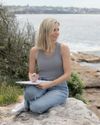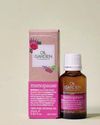
Do you feel deeply affected by the suffering of others or pick up easily on vibes around you? Maybe you avoid negative social media and news because of the way it affects you? What makes one person more sensitive than others? And what problems or potential advantages might we face if we’re one of the more sensitive crowd?
Dr Judith Orloff, a US-based psychiatrist and author, has spent decades investigating such questions. It was a search that grew out of her own experience. As a child Orloff felt there was something wrong with her. “I was criticised for being overly sensitive and told to get a thicker skin,” she says. Crowded places, like shopping malls, with their noise and overstimulation, exhausted her. They also caused anxiety, depression, aches and pains. Unsurprisingly, Orloff preferred spending time with one best friend over groups. A turning point came when the young Orloff met Dr Thelma Moss while working at an intuition lab at UCLA. Moss was the first adult to frame Orloff’s sensitivity as a positive ability. “She told me I was an intuitive empath,” Orloff recalls. “It felt liberating to know there wasn’t something ‘wrong’ with me and I had nothing to be ashamed about. A whole new exciting world opens up when empaths discover who and what they are and can begin to embrace themselves.”
Orloff went on to coin the term “energy psychiatry” to explain how some people’s mental health can be affected by subtle energies in their environment. Her books, including Second Sight and Thriving as an Empath and a growing number of blogs and films have given those who feel more deeply attuned to their environment a voice and sense of validation and empowerment.

YOGA FOR IMPERFECTION
Life is messy and we all make mistakes, but by embracing imperfection, we can begin to accept all parts of ourselves.

Creating the foundations of ritualist self-care
As a busy mum of a three-year-old and expecting another baby, finding time for self-care often feels like a luxury.

Are you doom spending?
If \"doom spending\" has become your go-to for coping with stress, you could be making withdrawals from not just your bank account, but your health too.

THE POWER OF music
Most of us enjoy music. But science shows music is central to being human and its effect on us is far more astonishing and impactful than we realise. Music is fundamental to life.

SYNTHETIC FOODS
Synthetic, or genetically modified, fake meats and the like attempt to mimic real meat in both looks, taste and texture. But how much do we really know about the production process and how do they affect the environment and our bodies?

Embracing the power of nature
Menopause is more than just a biological change, it represents a significant life stage that can present numerous challenges - from hot flushes and mood swings to fatigue and sleepless nights.

Jan Fran
From a young age, Jan Fran's deep curiosity and keen interest in social issues sparked her journey into the world of journalism. As an accomplished journalist, media commentator and broadcaster, Fran's passion for storytelling has always been driven by a desire to explore, question and shed light on the world around her.

Helping teen girls thrive
Statistics reveal that many more teen girls are struggling with mental health issues. What's going on with them? More importantly, what can we do to help them flourish?

Your ageing eyes
Your eyes work hard for you every waking minute. It is no surprise that how your eyes age will be determined by how you protect them. Eating the right foods can go along way towards ensuring that your eyes stay healthy for a lifetime.

The bottom line
During the Couid pandemic, we were shocked to see people fighting in supermarkets over toilet paper and to see empty shelves that had once held roll after roll. The reasons behind the run for toilet paper during this time reflect the unique place that it holds in our psyche and are deeply rooted in our history.